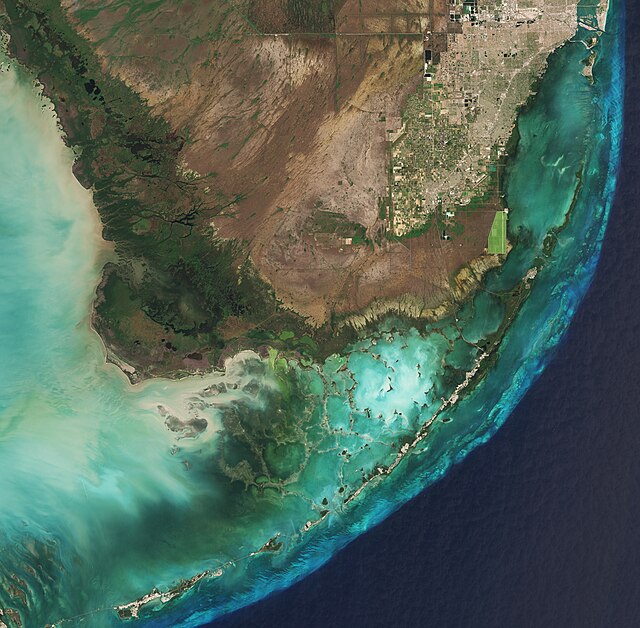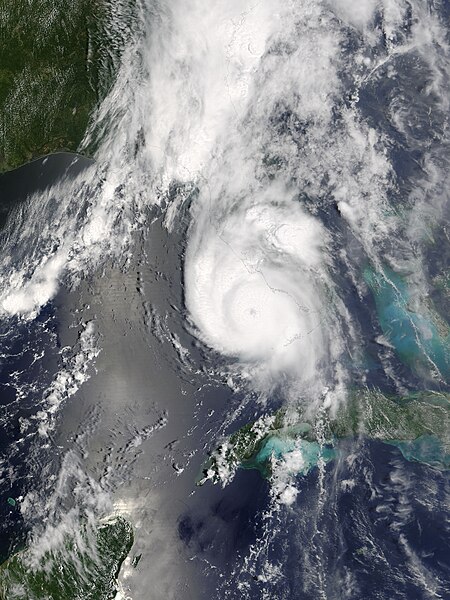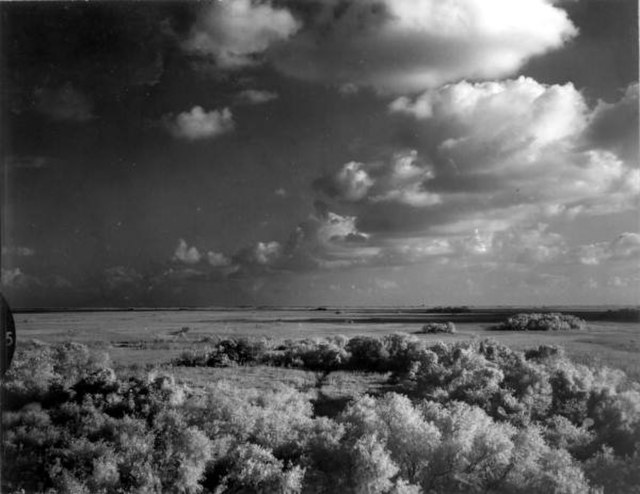Napoleon Bonaparte Broward was an American river pilot, captain, and politician. He was elected as the 19th governor of the U.S. state of Florida, serving from January 3, 1905, to January 5, 1909. He was most widely known for his major project to drain the Everglades, to recover land for agricultural cultivation. As governor, he built alliances with the federal government to gain funds for this project. In 1915, the newly formed Broward County was named in his honor.
Napoleon B. Broward
The Everglades is a natural region of flooded grasslands in the southern portion of the U.S. state of Florida, comprising the southern half of a large drainage basin within the Neotropical realm. The system begins near Orlando with the Kissimmee River, which discharges into the vast but shallow Lake Okeechobee. Water leaving the lake in the wet season forms a slow-moving river 60 miles (97 km) wide and over 100 miles (160 km) long, flowing southward across a limestone shelf to Florida Bay at the southern end of the state. The Everglades experiences a wide range of weather patterns, from frequent flooding in the wet season to drought in the dry season. Throughout the 20th century, the Everglades suffered significant loss of habitat and environmental degradation.
The most prominent feature of the Everglades are the sawgrass prairies found across the region.
A satellite image of the Everglades, taken in March 2019
Hurricane Charley in 2004 moving ashore on South Florida's Gulf of Mexico coast
A storm over the Shark River in the Everglades, 1966





